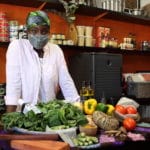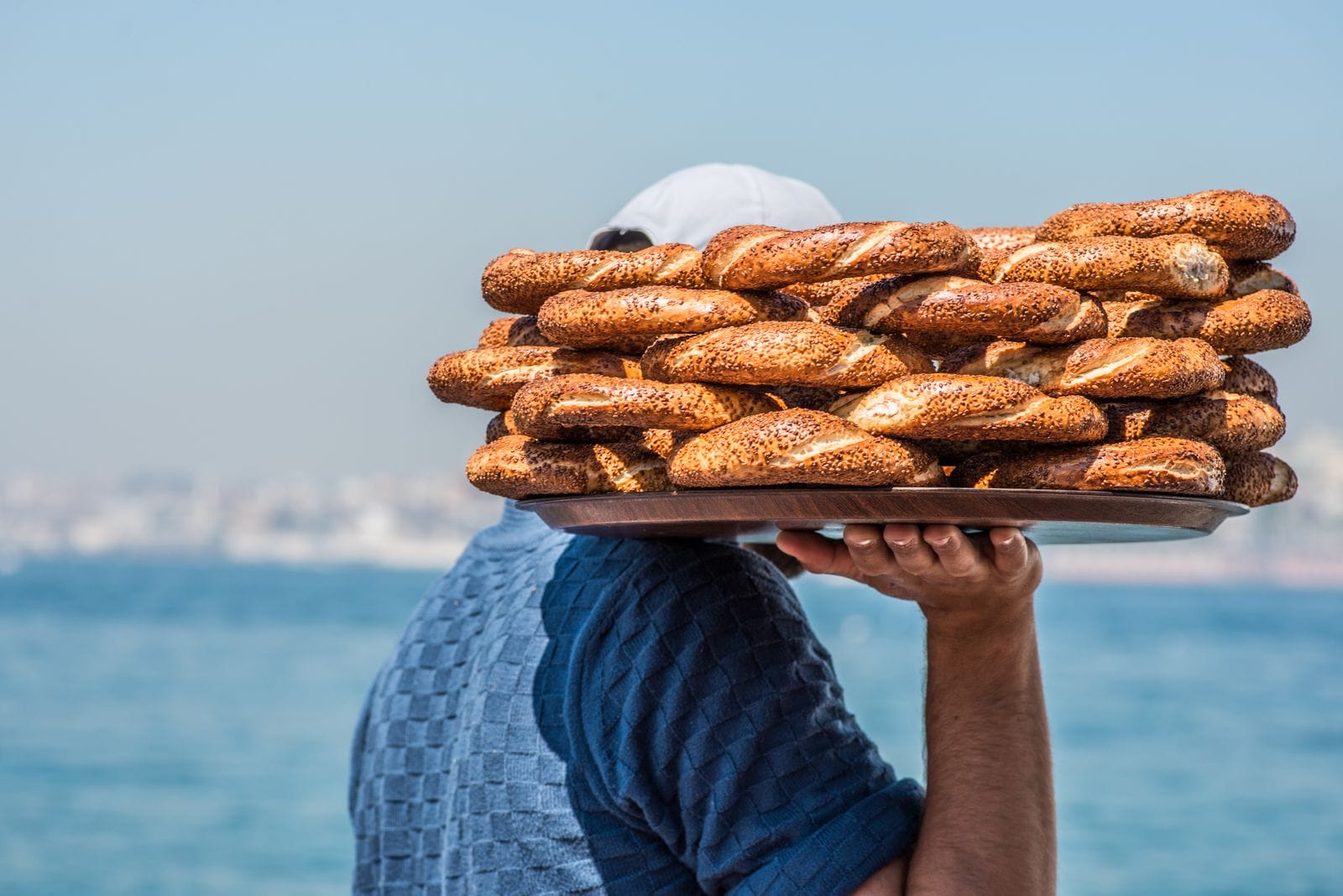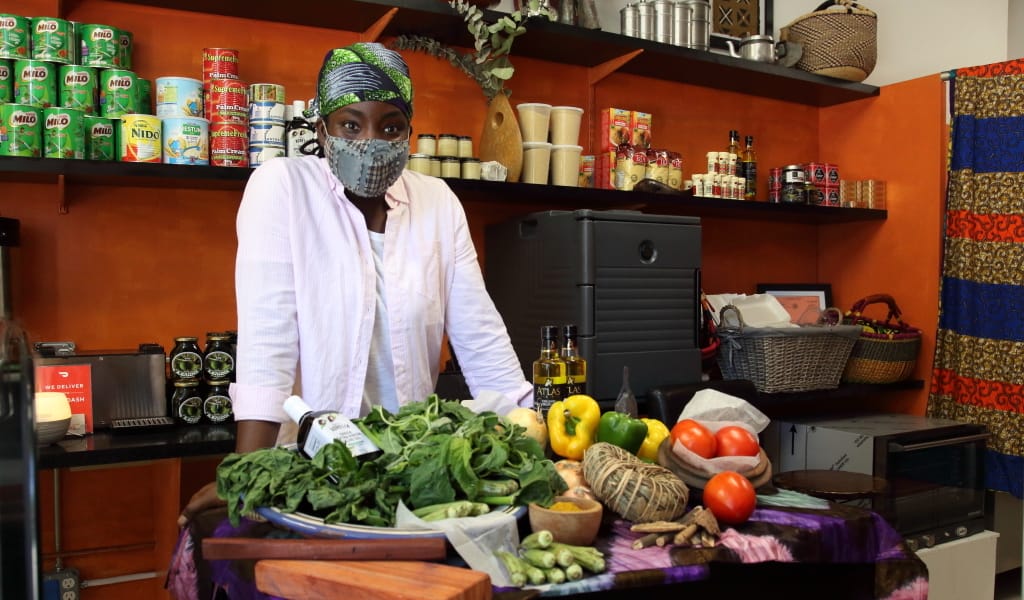In Kadıköy Kooperatifi, located on a residential street in Moda, a peaceful, almost sacred atmosphere reigns supreme. It’s a modest and sober place – quite different from the retail experience we’re accustomed to nowadays – but by no means dull.
For months we had heard bits and pieces about the shop – a cooperative selling goods sourced directly from small producers across Turkey – before we finally decided to see it for ourselves, right before the pandemic hit Turkey. What we found was a small space that, despite the peace and quiet, was more bakkal – the corner store that plays an integral role in neighborhood life – than exclusive organic shop.
It was a busy Saturday morning, and Gökhan welcomed us with a timid smile. As with most members, he has a full-time job but he dedicates some of his free time to working at the store. When we admitted it was our first visit, he took us under his wing. “We have products from all over Turkey,” he explained, “but mostly from regions where the natural or economical conditions are a little harsher than usual.”
“We have rice and lentils produced by Ayhan Kaleli, a producer from Yusufeli [in northeastern Turkey],” Can, an exuberant younger member, chimed in. One of the newest additions to Kadıköy Kooperatifi, he overheard us talking and couldn’t help but build on Gökhan’s point. Due to Yusufeli’s peaks and deep canyon-like valleys, through which the Coruh River runs, it has been exploited for the production of hydroelectric power, he explained. Even after being forcibly relocated for the construction of a new dam, Kaleli remains committed to cultivating local rice varieties.
Roaming around, we marveled at the variety of foodstuff on hand and learned about their origins from the little notes attached to the shelves. Beans, olive oil, cheeses, tomato and pepper pastes, jams – everything here has a story behind it, and it’s often connected to the struggle of the people who made it.

“Many of the things we sell actually come from women’s groups – from the pickled wild oregano and the spicy salça [made by] the Defne Dalı cooperative in Hatay, to the varieties of isot pepper produced by the Kibele cooperative in Suruç,” Gökhan said.
One of the most interesting (if inedible) examples is Yirca soap from the Soma district, where a catastrophic mine disaster, killing over 300 men, made headlines in 2014. That same year, thousands of olive trees in the nearby village of Yirca – the main source of income for many locals – were destroyed to build a power plant. Determined to continue supporting their families, women from Yirca used the crop from what were left of luscious olive trees to create olive soap. It’s a product that shows how the richness of nature can emerge even in the most hopeless of situations.
Speaking of industrialization gone amok, Can noted that it’s quite difficult to find locally grown and environmentally sound products in Istanbul, which is an intensely industrialized area. “Weirdly enough,” said Can, “the northern part of the province of Sakarya [a heavily industrialized region not far from the metropolis] is actually quite uncontaminated. This is where we get the potatoes, pumpkin and Jerusalem artichokes that we sell. Of course, only when they’re in season!” Likewise, according to the time of year and availability, batches of beautiful avocados are sent in from Datça, while citrus fruits and artichokes arrive directly from Izmir.
“When it comes to producers, we try and choose based on a number of criteria – mainstream certificates and brands not being among them,” Gökhan explained. “We get in touch with cooperatives or farmers through word of mouth, and sometimes we visit them, or we ask them to fill out a form [describing their practices]. We understand quite easily whether they are what we are looking for, if they are in line with our ethics and mentality.”
“When we start ordering food from a certain organization or cooperative, the neighboring farmers see a chance for their activity to grow, and for their territory to thrive.”
The virtuous circle that Kadıköy Kooperatifi and many other such organizations are triggering has a wider scope than just raising awareness amongst the people living in a certain area. “When we start ordering food from a certain organization or cooperative, the neighboring farmers see a chance for their activity to grow, and for their territory to thrive. So they feel motivated to keep on working and not to abandon their activity in the countryside,” Gökhan said.
In fact, the shop is one of the outlets for Ovacık Doğal products – various types of beans, honey, even salt, coming from a region where the cooperative system permeates the local economy, creating jobs and favoring equality while offering fair prices to consumers. Opened in early 2020, the Ovacık Doğal store in Perpa, on the European side of Istanbul, is the newest point of sale for this organization’s products.
“Cooperatives are very important both for producers to find a market, and for consumers to access whole, non-processed food, and to help communities whose main source of income is agriculture,” said Halit, an activist we met while sampling fish in Rumeli Kavağı, who worked tirelessly for the opening of the Perpa store. “With the local council in Şişli we regularly have meetings and roundtables to discuss the importance of a healthy, varied diet and of a sustainable agricultural system,” he added.
Indeed, neighborhoods have a crucial role in the building of such working groups and cooperatives. Kadıköy Kooperatifi was created after the idea was pitched in one of the many local discussion circles born from the Gezi Park protests.
“Around the end of 2014 we started as a basic distribution channel, serving as a connector between groups of farmers or single producers and the public,” said Gökhan. Thanks to the volunteers’ efforts, the project evolved into this shop, which is now open every day and can be patronized by anyone, not only cooperative members. Slowly but surely, it has increased not only in size, but also in terms of visibility and importance in its own mahalle, or neighborhood.

Now occupying the corner of a wide crossroads, Kadıköy Kooperatifi took the place of a bakkal – a reference point for any neighborhood in Turkey. “Since we moved to this new space a couple months ago,” said Gökhan, “I’ve seen many people from the neighborhood coming regularly, and the shop becoming a habitual stop for their weekly grocery shops – not the organic elitist store one may think.”
A bigger space and more visibility aren’t the only reasons why this cooperative is thriving: The produce sold here is delicious and healthy, but also affordable. In full compliance with the cooperative mentality, no profit is made. Any surplus is donated to other associations, such as Göçmen Kadınlar, a group of female refugees who sew cute bags, key chains and purses, which are also sold in the shop. Right after Covid-19 began spreading in Turkey, the group started producing protective face masks, which Kadıköy Kooperatifi sells as well. Made with a “pocket” to insert a filter, they are 100% cotton and come in various patterns and colors.
We recently picked up a few masks for ourselves and some friends, using the ingenious method that the members of Kadıköy Kooperatif developed to continue interacting with their customers while maintaining social distance: Products are showcased in the shop windows and then handed to the buyer through a cat flap that has been installed on the door.
While it’s not quite as easy now to load up on delicacies, we still stop by when we can to pick up some of our favorite items (including soap, which is particularly useful in these times) and always leave feeling recharged and hopeful about the growth of associations like this. They bring us back to the land.
 February 28, 2024 Two Markets Two Continents – Test
February 28, 2024 Two Markets Two Continents – Test
Quick Bite: This full-day Istanbul market tour draws from our best-of list in the […] Posted in Istanbul, Food Tours ND September 19, 2023 Nneji
September 19, 2023 Nneji
“We’ve tried our best to return to deeper ways of cooking,” says Beatrice Ajaero, […] Posted in Queens December 8, 2020 Georgian Kalata
December 8, 2020 Georgian Kalata
Back in the days when we avoided restaurants because they were mobbed with tourists and […] Posted in Tbilisi
Lorenza MussiniLorenza Mussini
Published on August 13, 2020
Related stories
February 28, 2024
Food Tours NDQuick Bite: This full-day Istanbul market tour draws from our best-of list in the European side’s Karaköy neighborhood and the Asian Kadıköy, tied together by a Bosphorus crossing, visiting two markets on two continents. Our favorite Istanbul experiences include exploring the eateries in local markets and crossing the Bosphorus on the public ferry. The route for…
September 19, 2023
Queens“We’ve tried our best to return to deeper ways of cooking,” says Beatrice Ajaero, sitting in the front room of Nneji (nn-Nay-jee). The name of her grocery and takeaway restaurant – which opened in Astoria during the early summer of 2020, not long after the coronavirus pandemic crested in New York City – has been…
December 8, 2020
TbilisiBack in the days when we avoided restaurants because they were mobbed with tourists and not because they lacked outdoor seating, when we greeted friends with cheek kisses and never cringed in horror when a person coughed, Vinotheca sold wine from its storefront on Kote Apkhazi Street. A few meters away, Aristaeus Ethno Wine Bar…



















































































